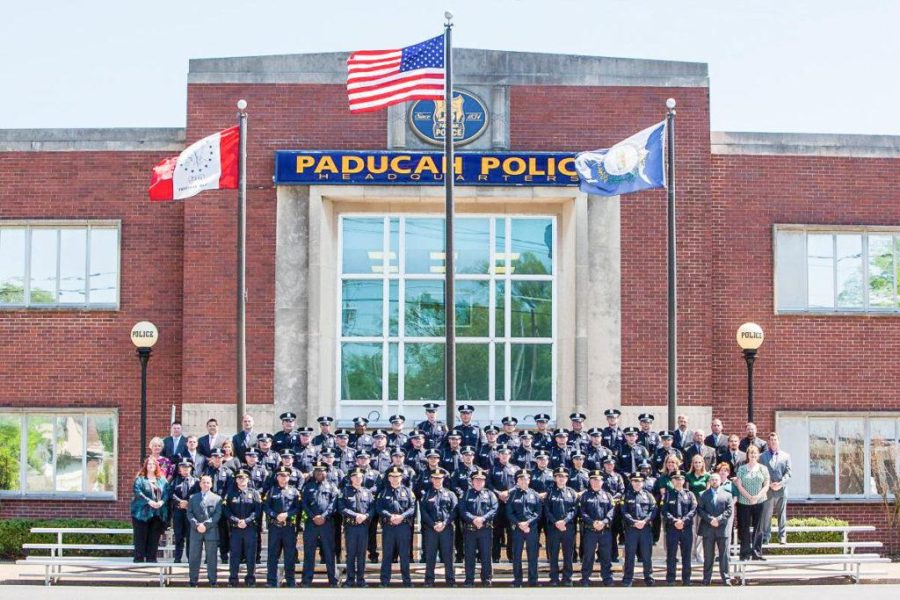Story by Sabra Jackson, Staff writer
Paducah City Police Department has joined national efforts to aim “Below 100” police deaths per year with the Below 100 training program.
Below 100 is a national training curriculum that was established in 2010. It focuses on keeping the number of deaths of police officers below 100 per year.
According to Below 100’s website, the average number of deaths in law enforcement between 2000 and 2010 was 150 each year.
Robert Bringhurst, captain of operations at the Murray State Police Department, said the program entails five key tenants:
- Wear your seatbelt
- Wear your vest
- Slow down: Revitalizing officers to watch their speed
- WIN: What’s Important Now?
- Complacency Kills: Asking officers to stay vigilant
According to the website LawOfficer, WIN encourages officers to stop taking unnecessary risks, be aware and assess situations for maximum safety, which is the goal of Below 100.
“The leadership of the MSU Police Department supports a culture of safety, and provide the police officers with the training, tools and resources to keep them safe,” Bringhurst said.
The Murray City Police Department has set up a diminishable skills course to allow one day a week for officers to work on their pursuit driving skills, a few days for shooting skills and another few days for traffic stops training. The department is encouraging their officers to be more aware of their surroundings.
“It starts with awareness on our part,” said Sergeant Brant Shutt, the Murray Police Department.
Shutt said the Murray Police Department has not yet added to this program, but may look at doing so in the future.
Sergeant Kelly Drew of the Paducah City Police Department said Below 100 works on diminishable and perishable skills. Drew said the average number of training hours that Paducah Police Officers go through each yea
Drew said he does not know of any other police departments in the region that are incorporating this program into their department, but each department must go through Kentucky Law Enforcement Council (KLEC) training. Drew hopes to see more departments develop programs similar to this.
Below 100 allows officers to go through 40 hours of training that include driving , mobile field force, active shooter, firearms and defensive tactics.
The Paducah City Police Department has an in-house training program that works in conjunction with the KLEC. The KLEC requires a mandatory minimum of 40 hours of training every two years for peace officers professional standards certification.
Drew said that each officer within the Paducah Police Department spends an average of 80 hours per year in training.
Officers have been sent to other agencies in the state to get training in other fields that are not done at the Paducah facility.




























































































